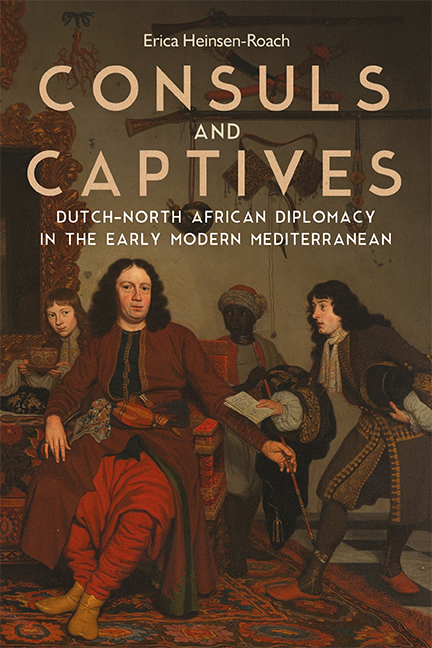2 - Captivity and Diplomacy in Algiers and Tunis
Published online by Cambridge University Press: 21 March 2020
Summary
Unlike that of Morocco, the histories of Algiers, Tunis, and Tripoli were intricately tied to that of the Ottoman Empire. They became provinces of the Ottoman sultanate in 1525, 1574, and 1551, respectively. In the early 1500s, the troops of the Spanish emperor Charles V threatened to conquer Algiers. Aruj and Khair-al-Din, better known as the Barbarossa brothers, came to its rescue. In 1525, Khair-al-Din took control of Algiers and briefly occupied Tunis nine years later. He turned Algiers into a vassal state of Suleyman the Magnificent and transformed the town from an insignificant village into a strategic naval outpost. Built against a steep hill overlooking the Mediterranean, and according to Khair-al-Din's instructions, Algiers’s outer walls were at least thirty feet high and protected by canals on land. The Dutch ambassador Cornelis Pijnacker described how the town stood on rocks so close to the water that waves pounded against its high walls and sometimes splashed over. A man-made harbor connected the seaside entrance to a fortified castle off shore, allowing corsairs to maintain a fleet and persecute merchant vessels.
Despite its position as a vassal state of the sultan in Constantinople, Algiers maintained ambiguous relations with the Ottomans throughout the seventeenth century. Until 1587, Ottoman officials appointed a governor to Algiers, the beylerbey, who also claimed authority over the pashas (governors) of Tunis and Tripoli. The beylerbey and the pashas in turn relied on Janissaries—that is Ottoman infantry soldiers—to keep order in town. The Janissaries were represented in powerful diwans (military councils), while the corsairs organized themselves in ta’ifas (associations) presided over by their captains. With the death of the beylerbey in 1587, the Ottomans changed the governments of the provinces. They appointed a pasha in Algiers and one in Tunis for three-year terms. In addition, the captains ignored the authority of the Ottoman kapudan-pasha (grand admiral) and took control of the fleets. Over the years, the authority of the Ottomans greatly diminished. In 1626, with the approval of Constantinople, the diwan earned the right to exercise all power. The president of the diwan, the agha, also became governor of the city. Both institutions thus gained full control at the expense of the pasha. Similar political changes took place in Tunis. In 1591, deys (junior officers) committed a coup that gave them virtual power over law and order.
- Type
- Chapter
- Information
- Consuls and CaptivesDutch-North African Diplomacy in the Early Modern Mediterranean, pp. 37 - 56Publisher: Boydell & BrewerPrint publication year: 2019



